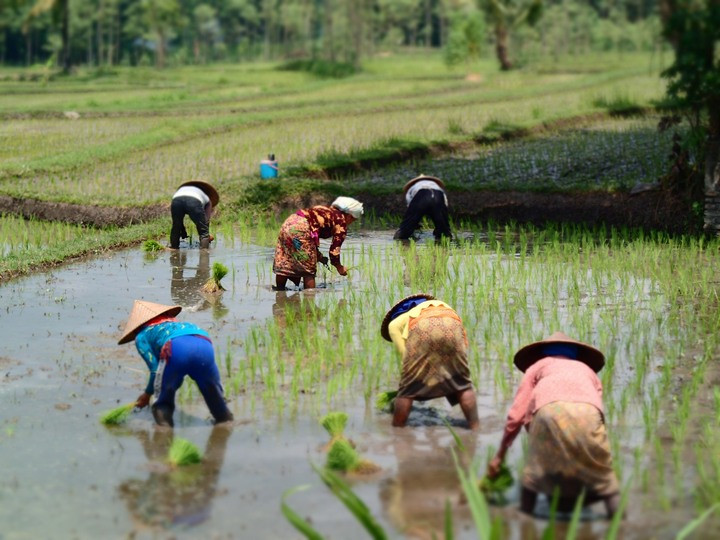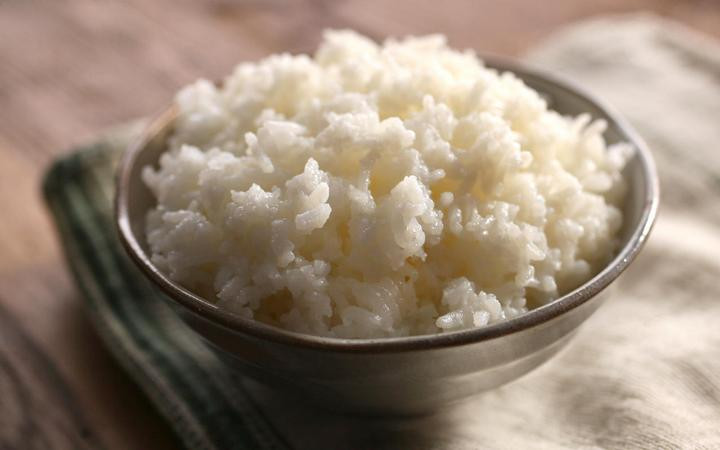Too high CO2 levels can cause rice to lose many important nutrients?
The latest study found that too high levels of carbon dioxide in the atmosphere could reduce the amount of protein, iron, zinc, and important B vitamins in rice grains.
According to the Independent site, the amount of carbon dioxide that people are "pumping" into the atmosphere at a rate of 1 million tons per second could be the cause of the destruction of most important nutrients in rice, the main staple that sustains. live for about 2 billion people in the world.

The concentration of CO 2 increases, affecting rice and nutrients in rice.
The latest study by scientists at the University of Washington, USA has shown that fossil fuel emissions not only cause climate change but also indirectly change the food we are still eating.
with an average of 410 parts per million (ppm). If CO 2 concentrations continue to increase in the second half of the 21st century, the impact on rice and nutrients in the "pearl of the sky" is inevitable.

Fossil fuel emissions indirectly change the food we are still eating.
Although CO 2 is one of the important materials that provide energy for plants through photosynthesis, something too much is not good.
Dr Lewis Ziska, a plant physiologist at the US Department of Agriculture, co-authored the new study, said: "It is often said that CO2 is a food source of plants and it is actually But how can plants react to the sudden increase in CO 2 without affecting human health? "
The research team from China, Japan, Australia and the US conducted a field study in China and Japan, using 18 different rice varieties.
They built an octagonal ring containing CO2 pipes and sprayed around a rice growing area. Methods of fertilizing or spraying pesticides are still maintained as usual.

High levels of CO 2 could affect at least about 600 million people mainly in Southeast Asia
Air ducts create CO 2 concentrations ranging from 568-590ppm. The researchers selected this concentration for 570ppm, which is expected to occur in 2100, the end of the 21st century.
Results from the field study once again confirmed previous findings that elevated levels of CO 2 significantly reduced zinc (5.1%), protein (10.3%) and iron (8 %) in rice. They also noticed that important B-group vitamins like B1, B2, B5 and B9 are also significantly lost when CO 2 levels rise in the atmosphere. In particular, vitamin B9 lost the most, decreased by 30%, the second was B1 (17.1%).
Vitamin B group participates in many human life activities, including supporting digestion, developing nervous system, strengthening resistance, preventing cardiovascular disease and neurasthenia.
Countries with low GDP, heavily dependent on nutrition from rice, will suffer the most from the increase of CO2.
For thousands of years, rice has become a staple food for many people in Asia and Africa. The study found that elevated CO 2 concentrations may affect at least about 600 million people mainly in Southeast Asia, which depend heavily on rice for more than half of the calories and protein consumed. take every day.
This is also an area that is assessed to be vulnerable to climate risks such as extreme weather or sea level rise. Vietnam is also considered as one of the countries that will suffer the most serious impacts from climate change and the greenhouse effect.
If CO 2 affects nutrients in rice, the consequences will be extremely unpredictable. First of all, the decline in nutrients in rice may have a significant impact on the health of mothers and children in countries with low GDP. In particular, children of developing age may face stunting, weakened immune systems, prone to dangerous diseases such as diarrhea, malaria, .

If CO 2 affects nutrients in rice, the consequences will be extremely unpredictable.
Previous studies have shown that the carbohydrate content in barley and potatoes increases, while the protein content decreases as the concentration of CO2 in the atmosphere increases. Further experiments later discovered that if the amount of carbon dioxide continues to increase, the nutrients in rice will continue to decrease.
Of course, not all rice varieties are at risk of being affected by elevated CO 2 concentrations. In the future, researchers expect to be able to produce hybrid rice or mutant genes to solve the problem of nutrient depletion in rice.
Besides, there are also some solutions such as creating improved fertilizer, adding nutrients to rice, and popularizing people about food diversification to improve nutrition when rice still as before.
The study was published in the recent Science Advances magazine.
- The United States found high levels of lead in Chinese rice
- Mistakes are harmful to health when people often cook rice
- Cook food with microwaves that lose nutrients
- Climate change will cause billions of people to be deficient in nutrients because of poor food
- These vegetables should not be boiled or lose nutrients
- Cooking rice in a folk style makes it poor
- Why should rice bran be eaten instead of white rice?
- White rice and brown rice, which is more nutritious?
- Discovering new rice varieties with antioxidant capacity
- Rice varieties with salinity and high yield
- Discovering a new kind of rice gene for high yield
- Successfully growing high quality rice varieties from Japan
 Why do potatoes have eyes?
Why do potatoes have eyes? 'Tragedy' the world's largest carnivorous life: Death becomes ... public toilet
'Tragedy' the world's largest carnivorous life: Death becomes ... public toilet Tomatoes were once considered 'poisonous' for 200 years
Tomatoes were once considered 'poisonous' for 200 years Detecting microscopic parasites on human face
Detecting microscopic parasites on human face